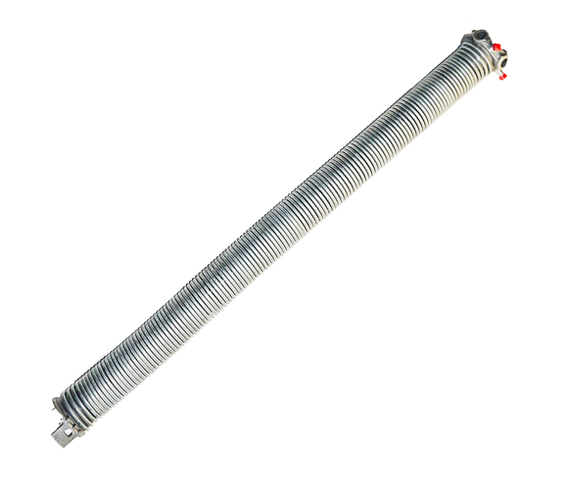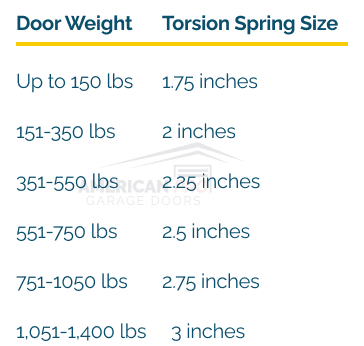Have a Question?
We have collected some frequently asked questions, and we hope that these will be beneficial for you.
if there is any doubt, please feel free to contact us

Torsion spring considered to be the most popular spring system for commercial and residential garage doors. Garage door torsion spring can last up to 10,000, 25,000 or more than 50,000 cycles. While there are many different wire gauge and length we have it all! just let us know which spring size you need and we can make it in house.
A garage door torsion spring is a vital component of your garage door system. It’s designed to store and release energy as your door opens and closes. These springs are mounted horizontally above the door and play a crucial role in making the operation of your garage door safe and efficient.
Garage door systems rely on either torsion springs or extension springs to facilitate smooth and balanced door movement. The primary difference lies in their mechanisms:
The choice between torsion and extension springs often depends on factors such as the type of garage door, available space, and personal preferences. It’s essential to understand these differences when considering spring replacement or installation for your garage door.
These sizes correspond to the torsion spring size suitable for garage doors of varying weights. Selecting the right size is crucial for the safe and effective operation of your garage door.

If you have any questions or require further assistance, please don’t hesitate to contact us.
You can conveniently purchase garage door torsion springs from various sources, including local hardware stores, home improvement centers, and reputable online retailers. For expert guidance on selecting the right torsion spring for your specific garage door and professional garage door installation, feel free to contact us.
Replacing and installing a garage door torsion spring is a complex task that requires expertise and safety precautions. If you’re not experienced with garage door systems, it’s highly recommended to seek professional services. Our team of experts specializes in both the garage door replacement and installation of torsion springs, ensuring your garage door operates smoothly and safely. Don’t hesitate to reach out to us for all your garage door needs.
We are here for you when you need us
If you are not happy, we are not happy
Contact us today and get a free quote
Best quality, best service, best value
I had a some issue with my garage and they were able to come out immediately to look at it. They gave me the best price around. Ori, my tech, was friendly, knowledgeable and fixed the problem quickly. I will definitely be using this company in the future.
Emily Box
We have collected some frequently asked questions, and we hope that these will be beneficial for you.
if there is any doubt, please feel free to contact us
We understand the importance of highly trained, reliable technicians ensuring that you get the service you need. We take care of all your garage door needs – installation, repair, adjustment or replacement to guarantee your satisfaction.
Traditional or more modern? Simple white or custom color? Our broad variety of garage doors allows you to find your style, material and size to fit your beautiful home.
Show MoreWe offer the best and most reliable openers on the market. From chain driven to belt operated. Straight forward or high tech. We help you choose what works best for you
Show MoreFull replacement or simple wear and tear – we are here for you when you need us. Emergency repair service with satisfaction guarantee.
Show MoreStrong, safe and reliable – our service, your doors. We offer a vast array of services to our commercial clients
Show MoreGet a FREE service for your garage door for any opener installation you choose!
Our service include: adjustment, safety tune up and lube. For safe and optimal door operation.
Replace your old rollers to an ultra quiet nylon rollers and get a free garage door service!
Our service include: adjustment, safety tune up and lube. For maximum noise reduction and optimal door operation.